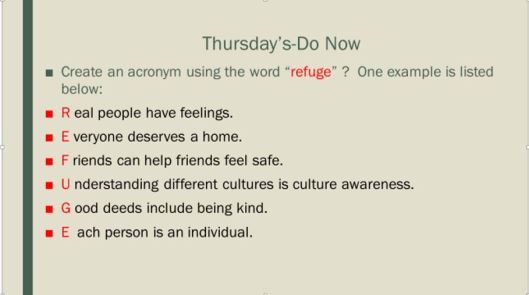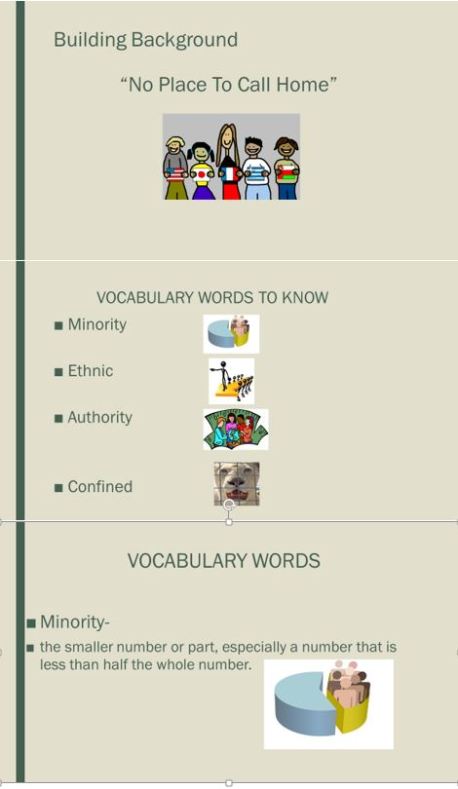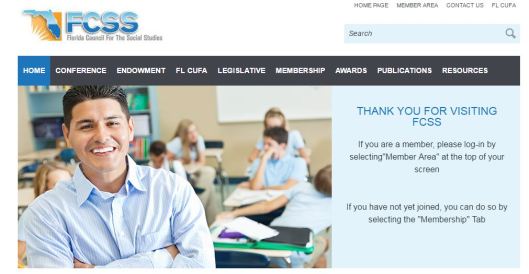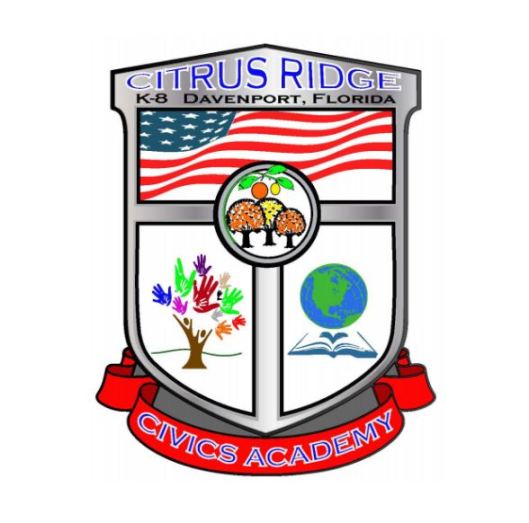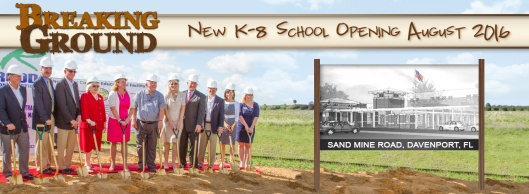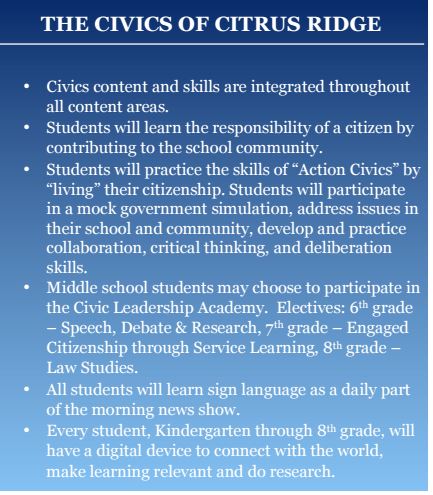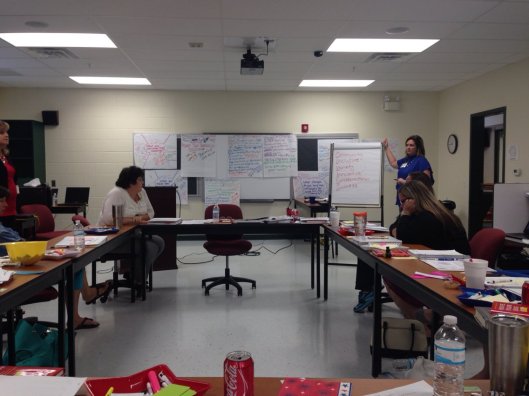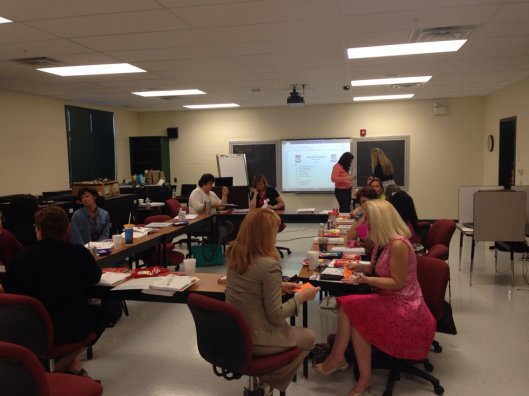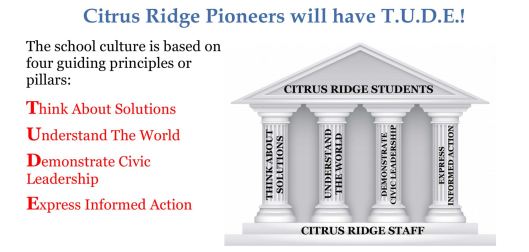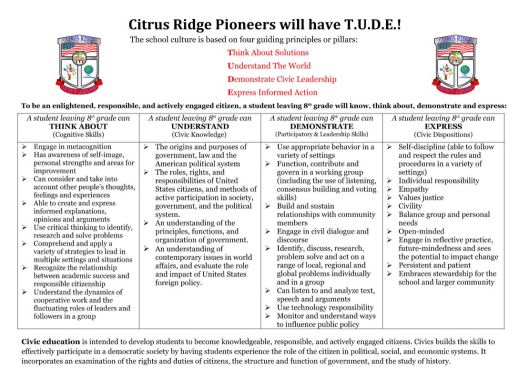As we here in Florida approach another mandated instruction week around our nation’s founding documents and civic legacy, I want to give a chance for you to hear how some districts have integrated something similar at the K-12 level. Kelly Watt is the social studies supervisor in Clay County here in Florida. Clay County has been one of the FJCC’s strongest partners overall, and we are happy to provide Ms. Watt with a platform to share the great work she and her teachers are doing in Clay. Please note that she has shared with you links to materials you might adapt! Most of the post is below the fold because there are some fantastic pictures!-Steve
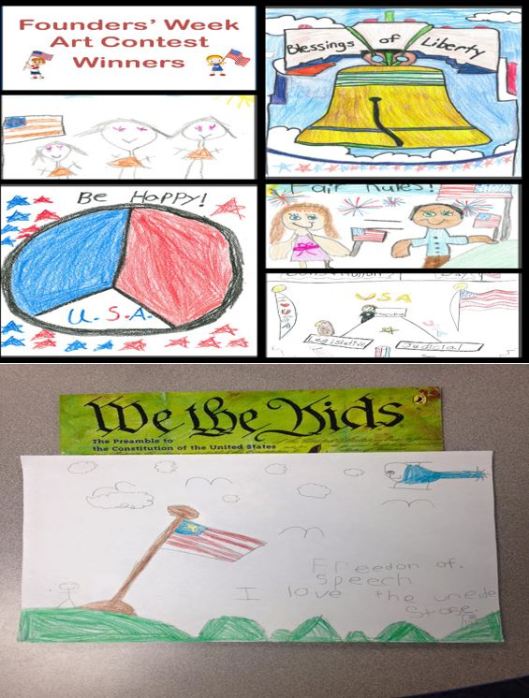
With a greater focus placed on math and ELA, it’s no secret that social studies has taken a hit nation-wide. The only core subject without a high stakes test in elementary schools in our state, social studies carries a lower priority in many K-6 classrooms throughout Florida. Like many other districts in Florida, Clay has sought out creative approaches that provide students with opportunities to engage in social studies content and skills. We believe that an ongoing, solid exposure to social studies will produce the citizenry needed in our global society, eventually closing the “civic achievement gap.”
While we have found opportunities to integrate ELA and social studies through curriculum mapping, lesson planning and professional development, we realized we needed to also capitalize on what was already in place. Each year, according to state statute, Florida schools commemorate the Declaration of Independence during the last full week of September. And according to federal law, we should recognize Constitution Day on September 17. Then last year a bill moved through the Florida legislature designating September as Founders Month. While it didn’t pass, it did get our wheels moving. What if we could establish a celebration during the last week of September that promoted the spirit of our country’s roots and values, while bringing schools and community together for a celebration that was uniquely ours?
Last year was our first year celebrating what we called Founders’ Week. I began planning in the spring, before teachers left for the summer. My vision included all K-12 schools engaging in meaningful activities during the week that supported the understanding of our founding documents, individuals, and ideas. These events would be coordinated from a district, school and classroom level. After gaining approval from our school district’s leaders, I shared out the plan with administrators at our monthly curriculum council. If this idea was going to take hold, it needed their leadership and support.
When teachers returned from summer break, I e-mailed them packets with information, lessons aligned to ELA standards and the Fisher and Frey Framework (our instructional model), and contest details. There was one packet for Elementary and one for Secondary. While they were expected to uphold state statutes, teachers were free to use their own materials as well.
Again, Founders’ Week provided us an opportunity for students to engage deeply in social studies content and skills. For this reason, each year we focus on a different theme. In our inaugural year, I chose the Preamble, since it serves as the foundational piece of our democracy.
Please read and see more below the fold!
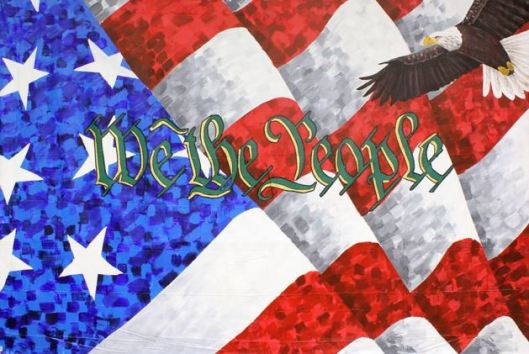
We kicked off Founders’ Week at our September school board meeting, which also happened to be Constitution Day. A beautifully painted mural, designed by high school art students, covered the wall behind the board members. A high school ROTC led us in the pledge and presentation of the colors. Another high school’s choir sang the National Anthem as well as some World War II-era songs. Finally, a different high school’s drama troupe wrote and performed a comedic skit based upon the origins of the Bill of Rights. The student participants were outstanding, so proud to be there and showcase their programs.. At the same time, the students, board and audience gained exposure to social studies concepts, while sending the message to the community that these things matter to us.
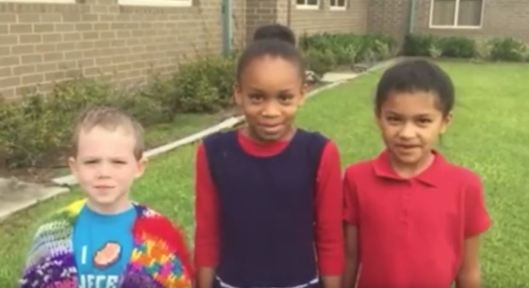
Founders’ Week was underway the following Monday. While the participation levels varied across our 41 schools, it was hard not to notice that every school was doing something. In fact, in many schools, a major celebration was underway.
Founders Week in the Elementary Classrooms
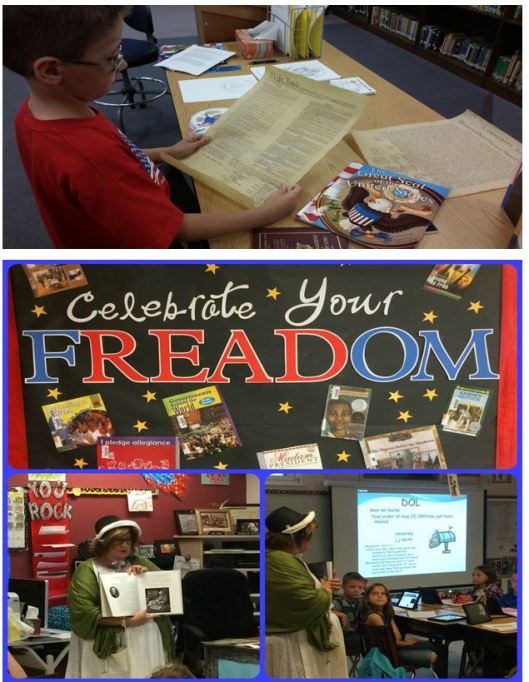
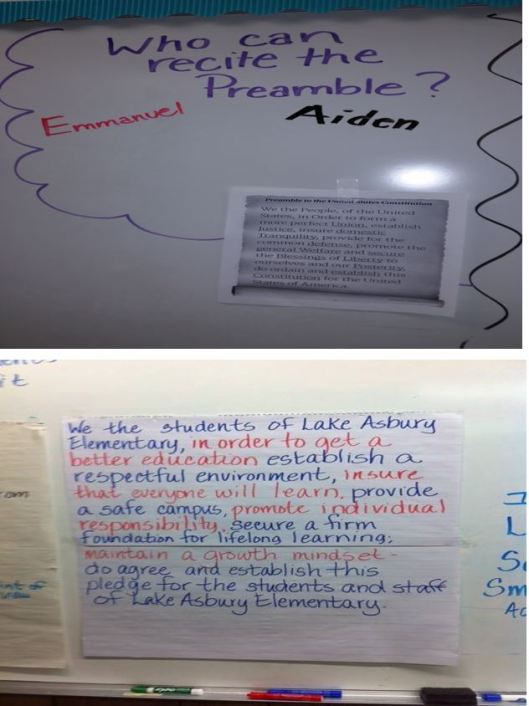
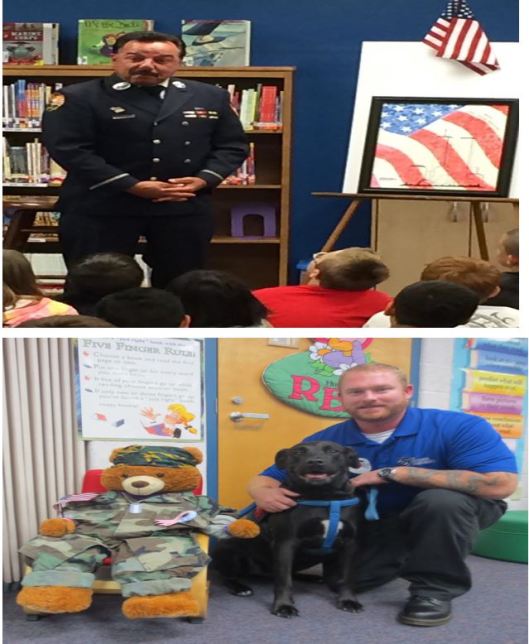
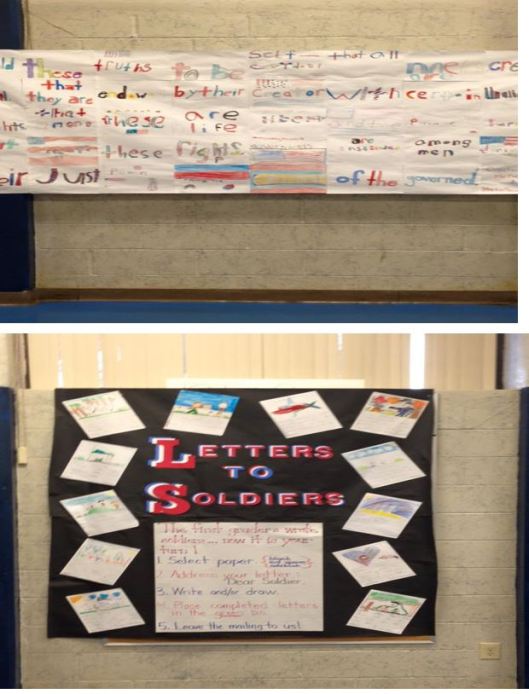
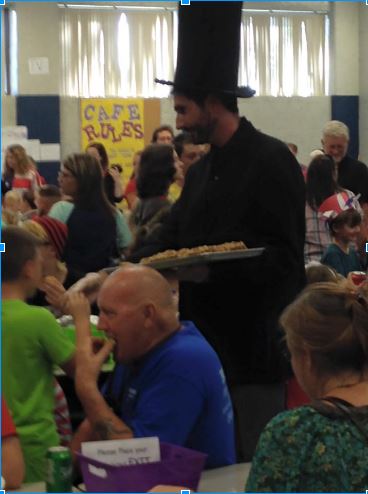
Yes, we do know that Lincoln was NOT a Founder…but he IS important when discussing the ways in which freedom has been shaped by our history and founding!
In one of our elementary schools, they held a Freedom Family Fun Night during the week, inviting families to enjoy complimentary hotdogs (distributed by President Lincoln himself), student choirs, children’s arts and crafts stations, letter-writing to service men and women overseas, students’ Declaration of Independence banners, as well as many other events. The school reported that it was the largest turnout for a family night in their school’s history. It was so exciting to see schools and community come together for something so positive…and so social studies!
Founders Week in the Secondary Classrooms
With classrooms very much content-based, the secondary world is more of a challenge in a district-wide celebration such as this. At one of our high schools, their academy coach worked with each of the school’s academies and departments to create a plan for integrating this content into their curriculum. For example, in science class, each day they took an important word from the Constitution (such as “self-evident” or “unalienable”), discussed its meaning in it’s original context, then applied that meaning to the world of science. In their Early Childhood Education classes, students studied the roots of the Pledge of Allegiance in schools, while students in the Vystar Business academy looked at the impact of 9/11 on our economy. Throughout the week there were presentations on the announcements from clubs, classes and academies, promoting concepts central to Founders’ Week. On Wednesday of that week, the school welcomed a number of guest speakers, including a World War II veteran, a wounded Gulf War veteran, and many members of all of the Armed Forces, both active and retired. Guests spoke of their service, their sacrifice and their dedication to our country. Reflecting on the week, teachers said it brought their large school together in a way they never expected. Students rallied around the spirit of civic values like it was Homecoming Week. For this week, we were all speaking the same language–the language of social studies, the language of democracy.
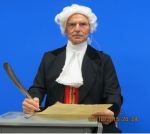
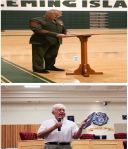
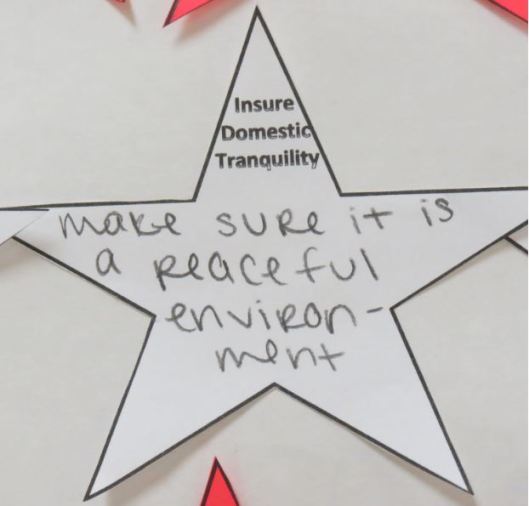
At the following month’s school board meeting we honored the elementary students who won the art contest, which was based on David Catrow’s We the Kids. Their work was recognized at our county commissioner’s meeting and is now displayed in our Teacher Training Center, which is also the site of our school board meetings.

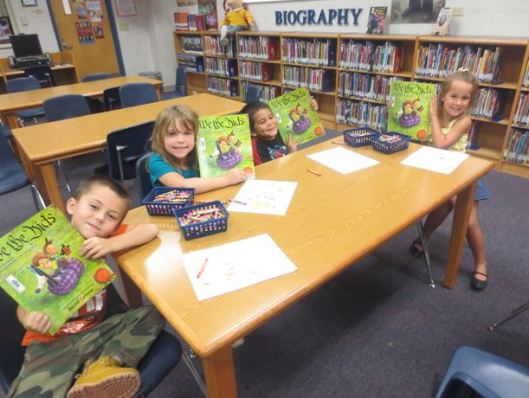
This year, I have continued with many of our same plans –kicking things off at the school board meeting with high school performers, supporting teachers with packets when they returned from summer (Elementary and Secondary), providing district-wide contests and reaffirming our commitment to keep talking about social studies.
A few changes were made this year that I hope will make for an even richer experience. For one, each school designated an official Founders’ Week contact (“Founderellas and FounderFellas.”) These teachers are those who make sure everyone has access to the packet and spearheads the organizational effort at the school level.
Secondly, I wanted to provide more entryways for our community members. We have so many groups that are eager to support us, but aren’t sure how they can best be utilized. Back in April, I invited many community groups to a meeting with all of our school representatives. In the room we had leaders representing our historical societies, veteran groups, Supervisor of Elections and Clerk of Courts offices, as well as our local museums. Seated at round tables, these mixed groups brainstormed possible plans for supporting this year’s theme — Presidents. Each community group was provided time to present and share their group’s mission. Since then, many schools have contacted these groups for in-house presentations.
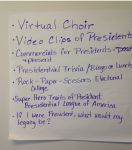
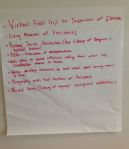
While last year didn’t instantly create a district of social studies-minded students, I think we planted the seeds. By the time a student reaches 7th grade, they have received at least seven weeks of instruction on the roots of our democracy since kindergarten. A graduating senior, likely old enough to vote, will have had three months of instruction, outside of their normal routine. We are working hard to close the gap so that one day our students will vote, volunteer, work on issues and become agents of change in their community. And while we are doing it, we are strengthening bonds with each other and our community.
If you are considering a similar celebration in your community, please contact me for more information: kelly.watt@myoneclay.net.
It is always exciting to see civics and social studies being done K-12 in schools, especially in a time when our field struggles to get more than lip service. Thank you, Kelly Watt, for an excellent post on the great things happening in Clay County! -Steve



